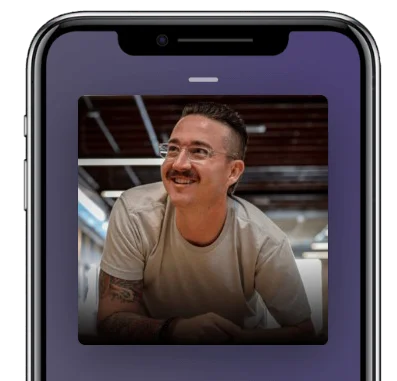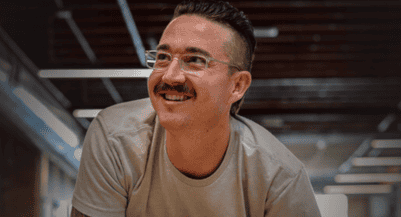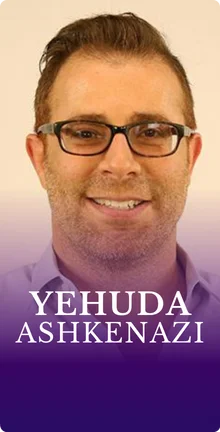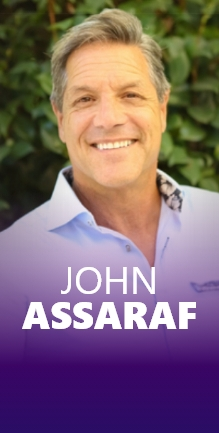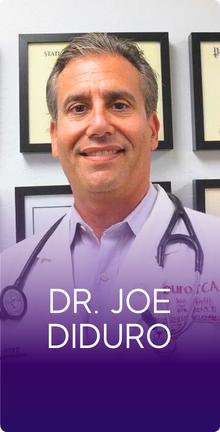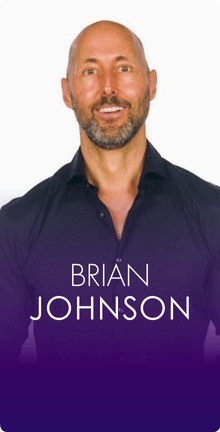In This Episode
- [01:46]Stephan welcomes Brian Bogert to the show and allows Brian to explain what it means to be a heart surgeon without a blade.
- [02:44]How does Brian become an effective mirror for people? He also shares his view on suffering.
- [04:41]Brian discusses the two paths to healing and explains the importance of taking out the trash within us daily.
- [12:32]Stephan shares an experience when he got triggered by a conversation with his wife.
- [17:39]Brian explains how we should view and address our triggers and commends Stephan for his vulnerability in his show.
- [22:33]Brian shares his view on anger and differentiates being safe and being protected.
- [30:07]Stephan and Brian discuss the different types of people we can encounter in our journey.
- [34:20]Brian emphasizes the power of our mental and intellectual narratives and the power of mental toughness.
- [43:56]Has Brian resolved all his deep anger?
- [45:23]Stephan explains the five-step process of the proactive formula he learned from Kabbalah.
Brian, it’s so great to have you on the show.
I’m happy to be here.
I think we’re going to create some magic in this episode.
It certainly feels that way. We’ll roll with it. If we rely on intuition, communicate, and connect, beauty will happen, and what’s meant to happen is going to happen, right?
That’s right. There’s a word I learned from The Alchemist by Paulo Coelho, and it’s called Maktub. It means in Arabic, it is written. Whatever ends up unfolding in this episode, it was already written.
To take it a step further, one of my favorite quotes from Ryan Holiday is, “There is no good or bad without us. There’s the event and the story we tell ourselves about it.” So it will already have been written, and it will be good or bad based on how somebody will put their narrative on it. For us, it just gets to be and exist, and that’s the beauty of it.
That’s awesome. What does it mean that you’re a heart surgeon without a blade?
I haven’t even heard that in a little while because people haven’t used that terminology or attached it in any way they’ve introduced me recently. To be a heart surgeon without a blade, where that came from, was one of my old teammates, who worked with and for us and was helping build our mission in the beginning stages.
After witnessing the ways that we entered into the world and having heard feedback in multiple cases, he started to tell people that what I do is reach inside, grab someone’s heart, pull it out, literally beat it back to life, and then put it back in a more repaired, better version of itself, but I never have to cut to get there.
It sounds like a little Aztec.
The reality of it is that what I genuinely believe that I do and where that came from is that I’ve learned that I’m just an effective mirror for people. I’m often the first mirror they’ve looked at that is completely objective and non-judgmental, but also a mirror that allows them to see deeper into their selves and understand the trash that they’ve been carrying for a long time that’s preventing them from actually moving forward in their worlds and being who they want to be before the world told them who to be.
When that non-judgmental objective mirror gets held up, people often have permission to feel or say something, to do something, or to have words to articulate an experience that they’ve existed in for a while without the ability to understand and articulate it, at the end of the day, when that happens, that’s freedom for people.
I reach inside, grab someone’s heart, pull it out, literally beat it back to life, and then put it back in a more repaired, better version of itself, but I never have to cut to get there.
We call it the heart in many cases because this is our rhythm of life. This is our heartbeat. But in reality, it’s just helping people better connect their heads to their hearts and align their intellectual and emotional narratives so they can move faster through this world with less effort.
It makes sense. Now, what’s your view on suffering? I know that there’s that quote—I hope I don’t butcher it—pain is inevitable, but suffering is optional. Something like that. Where do you see suffering in this illusory world that we’re living in?
This is a guided question because you know about our moniker and one of my core life lessons, or is this a pure coincidence? Either one is beautiful. I have a concept that I believe in, which is to embrace pain to avoid suffering. That’s also where we gain freedom. To understand suffering, we need to understand pain.
One of the things I have to acknowledge to be able to answer your question effectively is that the world tells us to reduce, eliminate, or avoid pain at all costs. It tells us to push through, show up with a smile, feel less, be happy all the time, and not allow our emotions to be felt. Every time we choose to push through, we also simultaneously push down. It’s the pushing down that creates suffering.
What we do as human beings is also define pain as short-term, intermittent, a direct cause of something, and alleviate it once that direct cause is removed. But then we put adjectives in front of it, like acute and chronic. Acute maintains the definition, but chronic inherently changes it because it implies it’s no longer short-term and persists after the direct cause is removed.
I’m imploring people to recognize, let’s stop calling that chronic pain and call it what it really is—suffering. We don’t want to admit that suffering exists, particularly when it’s a direct result of our choices, but the unavoidable precursor to change is acceptance. To get ourselves into a place to avoid suffering, we must learn to embrace the pain to alleviate that.
Suffering (to me) exists because of four things. First is internal suffering, which I would argue is probably 90% or more of the world’s suffering, but it exists in four areas. Things left unsaid, the things we lacked permission to feel or say, the words to articulate or to understand, or the things that are left undone.
To fulfill my purpose in life, which is to allow my truth to permit others to live theirs or by holding the mirror up to the clients that I work with, all I’m doing typically is giving them permission to feel or say something that they’ve never felt the permission to do or feel before. I’m allowing them to have a deeper understanding and to put words to articulate the experience they’ve existed in.
Embrace pain to avoid suffering. That’s also where we gain freedom. To understand suffering, we need to understand pain.
Suffering doesn’t have to exist, but it does require us to flip open the lid on our trash cans, look inside, and see what trash we’ve been carrying with us for the rest of our lives or the past part of our lives. It’s not always pretty, but the only way to breathe again and eliminate the heaviness that so many people come to me feeling and experiencing is to learn how to take out our trash regularly and consistently.
Taking out our trash, what does that look like consistently? What are you doing to take out your trash daily?
Taking out trash (I think) has two paths. It can be processed deeply and healed through, or real-time released by a better understanding of what’s happening. Both are necessary for the second to be sustainable. But the reality is that taking out the trash for me began with one of the biggest things I teach, which is understanding the depth of what I’m feeling and the alignment between my intellectual and emotional narratives.
It had to be understood that I existed and lived in shame, which is the ultimate wolf in sheep’s clothing because it masks itself as guilt, fear, perfectionism, control, anger, scarcity, and all these other pieces that I could never really pinpoint, even what it was. But then, when I was starting to understand deeply shame and how it showed up in my world, it would show up in a couple of different ways.
One would be causing me to shrink down, making me feel less capable because people would say, Brian, you can’t talk that fast. You can’t talk that loud. Anybody who’s been listening so far knows that those are both true. And I would all of a sudden feel not worthy and not capable or that my words weren’t necessary.
The other thing I would do is come out as angry and defensive because I had to protect myself because I wasn’t being seen or understood and wasn’t being connected. Or because of the patterns of my past or the trash, I was still carrying.
My wife would ask, “Hey babe, what will we do with the kids this weekend?” A totally innocent question, but my shame filter caused me to hear it this way. My trash connected to my shame caused me to listen to it this way. Hey, babe, you’ve not done enough to be a good husband and father recently, so what will you do to make up for it this weekend?
What would happen in that case? I’d feel the armor go up instantaneously, the anger would start to come out because anger is armor, and I would respond and react in real-time, hard, harsh, and fast, which is rattling off the ten things I’ve done in the last three to four days to demonstrate and prove to her that I was a good husband and father. Now all of a sudden, I’ve created damage that I now have to repair. I’ve made armor on her side.
Shame is the ultimate wolf in sheep’s clothing because it masks itself as guilt, fear, perfectionism, control, anger, scarcity, and all these other pieces that I could never really pinpoint.
I have to learn how to process all that. There’s a deeper answer to understanding the processing to escape the fact that I no longer get triggered in many of those situations. But what most people understand is that our triggers are those moments that transport us to a moment that’s not currently in front of us. It’s when our wife tells us to take out the trash, and all of a sudden, we get angry because somebody’s told us what to do, and it reminds us of a chore we had when we were a kid and how our dad used to come down on us for it.
It has nothing to do with the energy or emotion of my wife. It has everything to do with the trash and the patterns that we’ve been carrying with us. So many people haven’t allowed us permission to flip open the lid and look inside. The unpacking process is sometimes just even pausing and being able to ask a question.
How do I take out my trash regularly and consistently? I do it as real-time as possible now. So now, if my wife asked me that same question or something that might trigger something, and I feel it, now that I understand what the feeling looks like, I understand how it’s patterned in my world, I’ve done a lot of the healing through it, I’m more capable of this real-time than many of my clients are when they first start.
The point is, it’s about progression and spending less and less time on those negative emotions because now when she has something that triggers me, I understand it. I know it. I immediately knew my tendency to push down the emotion and feeling going to an intellectual narrative designed to protect. But, unfortunately, it often actually makes the situation worse.
I can pause. Now that I know that pattern and understand how that moves in my body, I can pause. Either diffuse it and release it because I know it’s not real by asking myself what I’m reacting to now due to the prior trash and patterns in my life or what’s right in front of me. Simply asking that question allows me to understand better, but because I’ve done the healing, I can now release it in real time because I know it’s not my truth. It’s not my narrative.
Or if I don’t get the ability to catch it in time, at least I can catch it enough to say, “Hey, babe? You just triggered me. It didn’t have anything to do with what you said. It had everything to do with how I received it. Can you please restate it so I can hear it more clearly the second time? And if we can’t move through this, maybe we can pause and revisit it later when I know I can have more neutral energy and have a positive conversation.”
For me, I can real-time reconcile and take out my trash, or I can put things in the container to look at later. It looks twofold: Real-time in processing like that with an example to re-empower through communication and connection, real-time so that the trash doesn’t create more damage. Or I put it in my container for later, and I can reflect on it at the end of every night.
Now that I understand the patterns and I’ve done that processing work, I can understand the moments today that made me feel like garbage. How did that feel in my body? If I don’t have a deeper understanding of what this looks like today, right now, at least it’s pointing me towards something that it’s, how often do I feel like garbage this way?
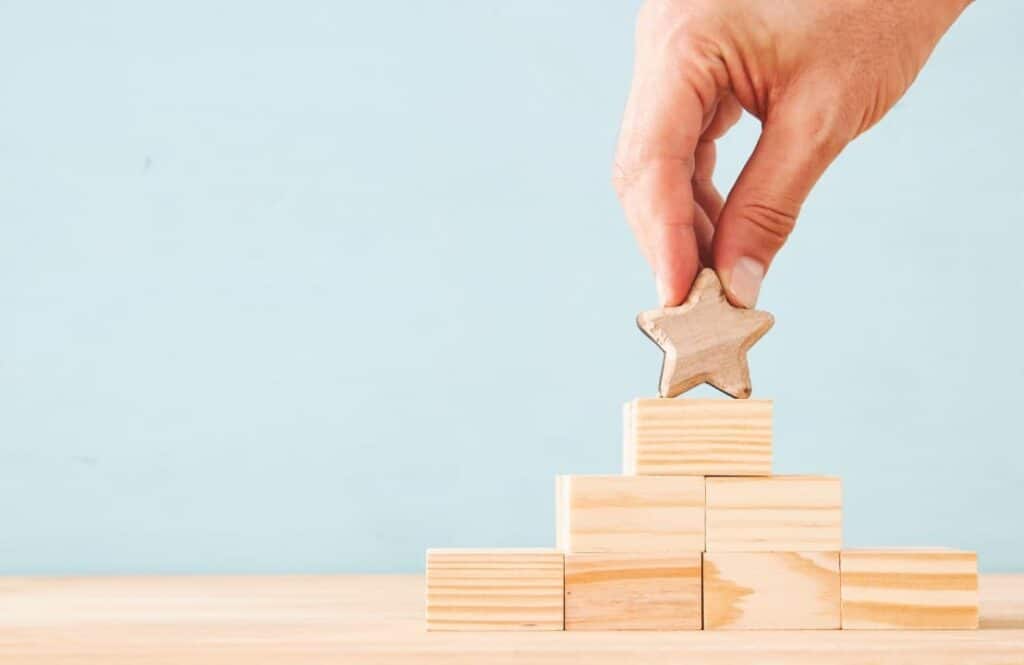
What I’m trying to employ everybody is we take out the trash in our house every single day. We refuse to live in garbage, yet we accept and often don’t even realize that we’re allowing ourselves to exist feeling like garbage.
I just want people not to feel that way anymore and to be more connected to who they are, who they’re becoming, and who they’re doing this for. By doing that, every night now, I go through this, and I understand what I was dealing with on this day and what processing needs to be done so that I don’t push anything further to be carried on to the next day.
If I know it’s connected to a deeper pattern or some level of healing that’s incomplete, it allows me to give myself empathy and compassion because I recognize that I’m still growing and learning. But at least then, I understood versus exist in this space, which I did for a long time, which allowed my intellectual narrative to fabricate a reality that wasn’t real. This needs to defend and protected in so many ways that kept me further disconnected.
You asked me before we started recording if I was willing to be vulnerable. I said, “Yes, of course.” I’m going to start being vulnerable right now by sharing that I got triggered last night by my wife, Orion. She asked me to promise her I would get our little toddler, David, to bed by eight-thirty, and I got triggered.
After analyzing it, I got triggered by the promise. Why should I have to promise that? I didn’t think that logically; it just was my immediate reaction. I was cantankerous about it instead of neutral, and we got into an argument.
Thankfully, I realized what I had done and not too far down the track. I apologized, and everything got resolved. We didn’t go to bed angry or anything like that with each other, but it was very instructive for me. Like, what is it about promising that I get triggered? Why does somebody insist that I promise them to trigger me?
We refuse to live in garbage, yet we accept and often don’t even realize that we’re allowing ourselves to exist feeling like garbage.
I concluded that my word is not my bond unless I promise. Why can’t you just trust me? Am I that untrustworthy? Am I that unworthy that you need the words I promise for my word to be valid? It’s just ridiculous. When you’re articulating it like this, that’s just silly. But it was in these well-worn grooves in my brain of old patterns.
It’s the trash you’ve been carrying with you, brother. You did at least progress enough in two levels, which isn’t surprising, but it’s the steps most people don’t make in these situations.
One, you reflected on it afterward to better understand it, and at least give yourself a narrative that led you down a level of questions that helps you see a pattern that exists.
Second, what you call cantankerous also likely caused damage in some form or fashion. What you did was recognize that the argument in and of itself creates damage. It makes this need to protect this armor from going up for both sides. Again, we feel questioned or challenged.
When there’s an argument, inevitably, damage can exist, and you seek repair to neutralize and defuse or remove that energy that existed, potentially for both sides, just by simply owning it and communicating it. I want to honor you on that for both levels.
Thirdly, I want to honor you for your vulnerability because you took me there without even allowing a question to be asked in the beginning. Because of the conversation string, you just leaned in, demonstrated vulnerability, and shared that story alone is identifiable. I guarantee you at least one listener if not many.
What I’m curious about, my friend is whether you would be willing or interested to go deeper on this. One of the first questions I would often ask someone who doesn’t even know if they’re carrying trash is, who was the last person who made you feel like garbage? In this case, it was really clear. It was an interaction with your wife.
I don’t mean to point the blame towards her. When I say, “Who was the last person that made you feel this way?” It’s not to suggest that it’s their fault. It’s dynamic. Next, I want to ask how it feels in your body.
It could be a tightness in my chest, feeling hot, or just sweaty. Either one of those. I don’t remember which reaction, but probably one of those two.
I guess my question for you would be, how did it feel in your body when you or your trash was triggered by your wife last night?
I don’t remember exactly which of these two body responses I felt, but it would have been one or the other. One is that my chest feels tight. It’s like compression in my chest, tightness and constriction. The other could have been that I felt hot or bothered, blood went into my head and felt sweaty, and I was physically uncomfortable that way. It was either one or the other. I don’t know which one.
How quickly were you aware that you felt that?
It wasn’t immediate. It took a little while.
But as soon as that feeling occurred, it immediately returned to here. It was also then why I was being questioned, like, “Why do I need to promise this to you?” That’s where the reaction and the contemptuous type of interaction you discussed are.
Our foundational human aspect can be broken down into four parts:The desire to feel safe, protected, seen and understood, and connected. Share on XYeah, it triggered some stinking thinking around, like, why would you even ask this? Why do I need to promise? Isn’t my word good enough? It was a lot of stinking thinking that got triggered. I didn’t even realize what was going on. It was that fast until after the fact, like, “Wait a second, this is just ridiculous.”
The feelings that you described in your body are very common. They’re very typical patterns in a couple of different ways. I won’t put you into a bucket of typical; we will get specific for you.
What I wanted to address since we’re in the purpose of the show is that tightness, that heaviness. Often, people feel the heaviness or the inability to breathe suddenly, the tension in the chest in some form or fashion. Even if they don’t realize it’s an inability to breathe, it’s in the chest.
What you were able to extend upon is that you are also aware because I don’t think it was one or the other. I think it was both, where you then also felt a little bit of the boiling, a little bit of a racing heartbeat, and, truly, that’s where the resentment, frustration, and what I would almost call borderline anger-type emotion, even though it wasn’t anger at the moment, was armor. It was the reaction to the need to feel the need to protect.
Here’s the interesting part. I’ll ask another question. What I’m really curious about is, when have there been other times in your life, and I’m going to particularly ask you to look at pre-age 12, that you didn’t feel like you were trusted or that people had trust in your actions or words?
There was a time when I was in first grade, and I came home with what was not exactly a report card. It was more like an interim thing related to some homework assignments. I don’t remember the details of it. All I remember is that the parent is supposed to make a smiley face to show that you did it.
When we don’t feel safe, our tendency to protect ourselves increases.
When I took it back to school, my mother made a smiley face. I got questioned and accused that I made the smiley face myself. My mother was left-handed. She didn’t have very good handwriting, so the teacher accused me of cheating.
This was to get like a sucker or something like that because you’d get some lollipop or something. I felt really ashamed about that. I went home again. I explained the situation. My mother wrote something on the card, but the damage had already been done.
I won’t get much deeper than that for today. I suggest that that was a situation that also triggered trash. It likely didn’t completely create it. That was a very clear understanding of where your word wasn’t being trusted. You were not being seen and understood in that environment, even though your intent, actions, and everything aligned with the truth.
The human experience is rooted in four things. First, we all seek a desire to feel safe, we all seek a desire to feel protected, and those are not the same thing. We all seek and desire to feel seen and understood, and we all seek and desire to feel connected. By the way, these last two don’t happen unless the first two do.
Interestingly, when we don’t feel protected, we also inherently don’t feel safe. When we don’t feel safe, what is our human tendency to protect ourselves? When we protect ourselves, our armor goes up.
Here’s the really interesting thing about armor. It’s protecting us and taking us further and further away from what we want, which is to be seen, understood, and connected. Let’s imagine it’s an invisible forcefield sheet. Let’s just imagine it’s a giant trash bag and a 33-gallon black trash bag.
Let’s call the fact that if we’re going to protect our trash, we will protect it with a trash bag. If you hold that black trash bag out in front of you, can you properly portray who you are, your intent, what you desire, your true feelings and emotions, and the depth of your truth through that black trash bag? And can we expect that someone on the other side will ever fully receive us for who we are if we’re holding up our trash bag?
What’s interesting is we protect ourselves by putting up this armor. But what it does is it takes us further away from being seen and understood, and it takes us further away from being connected.
The longer you carry negative emotions, the more you’re going to feel the pain and the more you’re going to suffer.
The other thing that often happens, my friend, and this is an important thing to look at from this lens, and now we’re holding up a trash bag. But what’s interesting is our armor is often a trash bag filled with all the trash we’ve been carrying for years. Let’s say I give you a full trash bag, and you just unloaded it from your kitchen. How long could you hold that there?
Hours. Although I have started working out, it’s certainly longer than it would have been two months ago.
Let’s call it two hours just for the sake of what you said. I’m holding it for two hours. Here’s what I believe happened through that. You probably feel it within two minutes. The longer you carry it, the more you’ll feel the pain, the more you’ll suffer. Literally, and the heavier it’s going to get.
Not only does armor prevent us from getting seen, understood, and connected, but it also incrementally crushes us the longer we carry it because it gets heavier. It gets stinkier the longer we hold it in front of us, which is no wonder why so many people say they can’t breathe, why they feel an intense heaviness in their chest. Legitimately, the trash is preventing you from being able to breathe.
If we’re going to hold it out there and know that that’s the case, okay, well, it’s heavy. And just because it’s heavy, doesn’t mean you can’t carry it. But still, the point is, do we want all that weight?
The third thing is that there are two kinds of people. Let’s just correlate this to an analogy with the trash can for a second. We’ll look into it a little bit differently.
Our bag typically has open trash cans and trash cans with lids. There are also two types of people. Some people wear their hearts on their sleeve, and you always know everything that’s going on, and it doesn’t matter what it is. There’s always just trash and garbage coming out of their world. And then some people will never let the world know they’re struggling.
By the way, the Latin word for suffering is to carry. The other thing is we’re suffering because of all the trash we’re still carrying and the armor we’re still carrying in front of us. Two types of people. I know I was the second one. Man, I was locked up. There’s only so much room in a trash can, and there’s so much room in a bag. But every time we push through, we push down.
We think we’re creating more space, but what we’re creating is more pressure, more weight, and more resistance. What happens to those that don’t have a lid on the top of their trash can or never tie up their trash bag so it remains open?

At some point, it can’t hold anymore. The bags are either going to break through the bottom or it’s going to start spilling over the top. Either way, your trash, your garbage, is now going into everybody else’s world around you.
Then there are people like me. I had a lid on mine, a lock on mine, mine was airtight and sealed. Nobody knew how much I was holding back. I sometimes suffered so much, and my parents didn’t even know I was suffering. The people who brought me into this world didn’t even know how much I suffered because that lid was tight.
Well, now it’s not just going to spill or break through the bag. It will be a container that builds perpetually under pressure, and it will explode, sending shrapnel of trash and garbage all through your world, creating even more damage.
Anger is armor. One of the first things we can do, and one of the things I would say to you is, find a way to get in your body faster every time you do this. The faster you get in your body, the faster you can understand what to do with it because we all know what it feels like when we feel like garbage. And if we can pause long enough to understand how it feels in our body and the physiological responses, then we have a pattern we can pay attention to.
For you, then it also got a little cantankerous, as you called it. That armor went up, and you even felt the blood boil, a little pressure. As I said, although it probably didn’t come out as a big reaction in anger, it was resentment, frustration, anger, like, why are you questioning me? Why don’t you trust me?
Anger is armor because it’s designed to protect. Often when we feel those emotions and those energies, it’s just understanding that, okay, if I’m carrying this armor right now, is it getting me closer to what I want? To be seen, understood, to be safe and protected, or to be connected? And the answer is typically no. What do we do with that?
Part of the way we take out our trash regularly and consistently is to become the protectors and connectors in every environment we’re in by being vulnerable enough and open enough that we don’t need external protection, and we can convince ourselves that we are safe. We can lower our armor when we can convince ourselves that we are safe.
Our trash gets in the way of having everything we want and being exactly who we want to be before the world tells us who to be.
We have a really beautiful opportunity as leaders in businesses, in communities, in our families in life, to then become the protector by wrapping a layer of protection around everybody that’s in that container so that everyone can be safe, everyone can be protected, everyone can be seen, understood, and everyone can be connected. Our trash gets in the way of having everything we want and being exactly who we want to be before the world tells us who to be.
How did you come across or find that being safe and being protected are two different things, or feeling safe and feeling protected are different things?
Because typically, we often feel that we’re safe when we protect ourselves. What I started to realize is I wasn’t safe. I was terrified, which is the reason the armor existed. Many people convinced themselves that they were safe by pushing through and pushing down. But I started to recognize that there are also many different people I can be around.
At this point in my life, where I’m at in my career, and the things that we’ve done in the world—I don’t say any of this to impress, it’s just to impress upon the point—more people want something from me than want something for me.
Typically, we feel the need to protect when we feel like we’re being challenged, when we’re being questioned, when we feel like we’re being asked to do something, or when we feel like somebody’s just going to be a drain, or they just want something from us.
The difference between safe and protected was when I started surrounding myself with people. People on my team, people in my business, and people I’m running and collaborating with. I started to pay attention to whether I wanted something from this person or something for them. Do they want something from me, or do they want something for me?
Even that alone started to point me towards the energy on the difference between caring armor and not, because those that want something for me, I feel safe and protected. Those that want something from me, I don’t feel protected.
I do feel safe because I know myself, and I know that I can isolate and set the appropriate boundaries because I’ve done a lot of the work. But when someone inherently wants something from me, how many times in a sales pitch? The first freaking thing out of the gate is like a question to try to highlight pain, create a gap, or show you all the reasons why what you’re doing isn’t working.
Immediately, they have a path that they’re guiding you down because they want something from you. They want your money, and they want your sale. I even changed how I approached sales 15 years ago because I decided that I would no longer ever sell. I was going to focus on relationships, value, and creating impact.
I feel safe and protected by those that want something for me. But, I feel discomfort with those that want something from me.
If I do that effectively, and I can maintain a high level of intent, then the reality of it is that I can be safe in every environment, and I don’t need to protect. But again, the difference is someone who wants something from me I don’t feel protected by. Someone who wants something for me typically goes out of their way to protect me.
What a great distinction. I don’t know the right word for what brings my hackles up. It puts me on full alert—when I hear the phrase, can I pick your brain for a minute?
I get a lot of those messages every single day. Can I buy you coffee and pick your brain for five minutes?
Can I just steal your juice?
The reality is that I believe I want to give to the level that I feel it. My wife and I believe that we give until it hurts, meaning we give until we feel it. Now that’s something aligned for us that hasn’t exposed us to too many situations.
There are still times that I will give because I desire and I want to. Not everybody can access me because of their resources, where they’re at in life, or whatever in a one-to-one perspective. But to your point, I also often look for people who can at least exchange whatever value they are capable of giving without just taking.
Yeah. I love this analogy that I learned from my friend, Amy Africa. She explains that there are three types of people. There are the juicy people, the juiceless dry people, and the juice stealers.
The juice steelers are the ones that you most have to watch out for because they seem juicy. They’ve got all this great knowledge and dropping all these wisdom bombs and everything, but it’s just other people’s stuff that they’ve stolen and reiterated. They’re looking to do the same with you.
She had this analogy of they’re walking around with a syringe tucked away. If you could imagine having your peeled orange stuck on your forehead, either a juicy orange or a dry, tasteless orange, that’s the non-juicy people. Then there are those folks who have what appears to be a juicy orange on their forehead, but it’s full of holes because they’ve been using their little syringe to extract your juice and everybody else’s and then put it into theirs. Then they’ve got this leaky sieve of an orange that just leaks out all the juice, so they have to keep replacing it.
Those people ask, “Can I buy you a cup of coffee and pick your brain?” That’s what you must watch out for most because they’re stealing your juice. They’re not only taking advantage of you. Everyone else down the line will be negatively effective because they’re using your amazing wisdom and brilliance as if it’s their own with others to fool them.
That’s exactly right. By the way, there are many people in the world right now talking and very few people with anything to say. The other piece is just to pay attention to who you’re surrounding and who you’re asking for advice from.
We must become protectors of others, create interpersonal connections, and lower our own defenses through vulnerability. Share on XI would always say look to figure out where you can create value and impact in any relationship, and if there’s meant to be a path, it’ll develop. That’s just often what I look at. There are other terms out there. I love that analogy, by the way, the juice. There are feeders and bleeders. There are all these concepts.
The other element I didn’t address that I want to make sure that people hear the difference between being safe and protected is whether I am in an environment where I will be open to ridicule, judgment, and criticism. Or am I in an objective, neutral, and non-judgmental environment?
Typically, as individuals, we do not like criticism, we don’t like judgment, and we typically don’t like to receive those feelings. Often, it’s because they are projections of the person putting them into our world, and they just trip one of our pieces of trash. But protected is when you’re in an environment, with friends, or with people who are always looking to build you up, not to tear you down.
It’s not always the for and the from, though you can extrapolate this concept through the same idea. What I want to point out is that there are people who will help build you, and there are people who will drain you and cut you down because it makes them feel better. You are not protected if you’re not in an environment that’s neutral, objective, and non-judgmental.
I love that. It reminds me of something I learned from Kabbalah that you’re either judging or you’re loving. You’re in judgment, or you’re loving. You’re not the other when you are one, so it’s binary.
If you find yourself judging somebody, like walking down the street and judging a homeless person you see, know that you’re not loving them right now. Conversely, if you love somebody, know that you’ve parked the judgment. It’s quite freeing because it makes it so simple.
Most of these things are, but like we like to do in this world, we overcomplicate some of the most basic fundamental things about the human experience.
I’m curious, did you have a particularly difficult and dark night of the soul, where this launched you into this area of study and expertise?
I never had a singular night. I’ve had a lot of things happen and a lot of little moments and inflection points. What I’ll hit on, because I think it’s relevant to answer the question, is I think this has always been in me, but I was not always willing, courageous, or vulnerable enough to look at it.
It goes back a long time. When I was seven—I’ll expedite the story for time today—I was run over by a truck, and my left arm was completely severed from my body. I reattached 24 surgeries. I pushed through and pushed down a lot. I created an intellectual narrative to protect myself that I was good, strong, capable, and could do anything myself because nobody believed my own story.

I’m fast-forwarding and going through this. In that period was the power of our mental and intellectual narratives and the power of mental toughness, which I think is critical, but it’s only part of the equation.
When I was 20, I rebroke my arm and almost lost it again. I went ten months with it hanging by my side. I went through seven surgeons afraid to touch me because of medical malpractice. A bone loss and dangling inside my arm at any moment with the risk of me potentially losing it again.
Now, all of a sudden, I found myself completely alone, navigating many of the same experiences I did as a kid when surrounded by support and help from my family. I had lots of friends, lots of family. By the way, nobody was there.
At the time, I was angry and upset, but it didn’t take long before I realized they had just bought into the power of my narrative. Brian’s good, Brian’s strong, Brian’s capable, he can do anything himself. And if he’s not, he’ll ask for it.
They didn’t understand, and I couldn’t admit, that I didn’t have the courage at one of those most vulnerable periods of my life to ask for help. But I shifted to that next period, realizing I wanted more human connection. So I focused on vulnerability and authenticity, the glue that binds human connection.
What did I do? I was looking for who and chased the what because that’s what the world taught me. What I used to think was my revolutionary story, my creation story, was my original accident. Now I just created a lot of trash that I pushed down that I had been carrying for a long time. It was a mere broken bone that flipped the lid to expose what was inside. And it was only the beginning of it.
I got good at vulnerability and authenticity, but I was looking for more connection, more who’s, and what did I do? I didn’t have a good model of what vulnerability, human connection, and interactions could look like. That doesn’t say that I have bad parents. I’ve got phenomenal parents, but let’s call it what it is. We as a society aren’t good at this.
What did I do? I chased external validation and success. I pushed myself to a high performance. Over the next 15 years, I developed a $15 million business that I built with some partners and was riding on the top of the world. But at age 27, I had all the whats, what house, what car, what amount of money, what amount of success. But it cost me the ultimate price because it cost me the connection with who I was.
Anger is a direct result of old wounds that need healing. Share on XThat was an awakening moment for me to realize that I was now running in circles of people making multiple six figures, seven figures, and eight figures. Even though it wasn’t an intellectual process and thought, I used to believe that if I got to a position of prominence. People might admire me, just want to be around me, be in my presence. I was living the life that success defined us, yet suddenly, I felt like garbage and empty, still in need of who.
I had more connection to emotion over that period. I hired my first coach then, and within a month, he said, “Brian, you’re going to be doing this.” I was like, “What are you talking about?” He goes, “You need to be coaching and speaking. You do it naturally every single day. You’re always helping people. Why wouldn’t you formally go into this and commit your life to it?” I was like, “Whatever, dude.”
I’m paying you a lot not to tell me how great I am but to help me figure out these other things. It led down another path of awareness, more vulnerability and authenticity. I did jump into the business. But it wasn’t until I was in my late 20s or early 30s my daughter was two years old. Laying on the couch, she reached her arm around, kissed me on the cheek, and said, “Daddy, I love you,” and I started crying. Pure joy.
What I didn’t realize is that when I shut off physical pain because it exceeded my ability to cope 25 years before that, I also shut off emotional pain, mental pain, and spiritual pain, and I didn’t even realize it. Because if I’m experiencing joy this way, I’m certainly not experiencing fear, worth, despair, shame, or anything else. Now all of a sudden, the narrative my wife saw, which was that I don’t feel anything, started to become very, very clear because I did believe I felt everything because I always felt like garbage and chaos inside.
We stayed in that space. I started to unpack this, but I realized that a human connection without emotion isn’t a human connection. It changed the way I did everything.
It was 2019, and after some other health stuff, my wife and I went away for a weekend. It was one of those weekends that mentally, physically, spiritually, and emotionally, like, oh, we were one. As we pick up our kids, she leans over and asks, “How would you feel if you didn’t have to go to the office on Monday morning?”
The more we chase “who,” the more all the “what” in our world is just a manifestation of who we are. That’s how we get to move faster with less effort.
Five years into running my coaching and speaking business side by side, at this point, I was flooded with fear, drowning in doubt, and swirling in my shame. I was like, okay, that’s a pretty loaded question. Why don’t you tell me more?
She told me that I allowed the status, prestige, money, and financial security to convince myself that I didn’t have an option, that this was what I was destined for, and that this was the life we needed. She said, all we need is 100% of you, and we don’t have it.
I don’t care if we live in a cardboard box in the corner. She said, “I know you’re barely scratching the surface of your potential.” I know you’re barely impacting the world you want and are capable of, so why don’t we double down on the bet we’ve taken on you multiple times and see what we can do in the world?
That was the real moment that told me I would go all in because there was a three-month process in which I had to take out a lot of trash myself to see myself clearly before I could fully lean in. That was the final push with the tops of the waves I hit over the prior 25 years that put me in the position where I know without a doubt. I now know after I’ve done it, consistently after executing the buy and sell on my last business and doing this full time, after years of doing this, this is exactly who I am and what I’m supposed to be doing.
Wow, amazing. Imagine that you and your wife are going away for another weekend, and she leans over and says something else to you. Now you’ve made some changes since the last time, 2019. What did she say this time?
Well, 18 months ago, we had one of those moments. We were sitting on the back patio, and mind you, I left the other world I went into to bring more of myself into this world. I’m committing the rest of my life to helping others deal with their trash and become who they are.
My wife sat down on the back patio and told me that actions, behaviors, and patterns that I had done early in our relationship had created trash and patterns in her that caused her to lose who she was.
Here I am, two years into committing the rest of my life to be the best man and father I can be and to bring this into the world, and the singular person I care most about got the other side of me. What we started to unpack is although I was very aware at that point about my shame, it was just 18 months ago, I started to realize that I also was dealing with a really deep dark level of anger, buried so deep, it could barely be excavated.
That moment became very clear because the only thing binary in my world—I love that you used that word, by the way. You don’t hear binary often, as I often say it in this context—is my wife and kids. They’re the only thing that comes above everything else we’re doing.

If they are not good, if they are not feeling safe and protected, seen, understood, and connected, if they are not understanding how to take out their trash, if they’re not feeling centered in who they are, empowered in who they are, absolutely seen and convicted in every single moment, then I’ll walk away from everything else I’m doing.
I took a ten-day window. That day, I handed my phone over to my wife, and I said, get with the team and clear my calendars. I’m not doing anything for the next ten days. External. I went deep inside in 10 days. Now I’m not telling you that it was fixed in ten days. It’s been an 18-month process of unwinding it. But we’re now sitting where she could still bring something to me like that.
I went from March of 2021 feeling that we were in the best place in our marriage we’d ever been, to the end of April, wondering if I’d even be married by the end of last year. My true fear and my true existence of suffering almost became a reality. I almost lost everyone and everything I cared about right in front of me, right there to grab access at any moment because of how I showed up in my house.
I’ve dealt with a lot physically, mentally, emotionally, and spiritually, and that’s not to say I’ve dealt with more than anybody else. But the depth at which I’ve gone in myself makes me know I’m safe no matter what happens. I’m also extremely detached from anyone or anything at this point. Not that I don’t care, invest, and I’m attached healthily, but nothing one thing other than my wife and kids will ever define me.
It allows me to be open to receiving whatever feedback she gives me. It allows us to have conversations and neutralize and defuse generational patterns that we both inherited, that went back three generations that we’re now real-time working together for the first time in business and in life to create the life, the family, the household, the business, that is just a manifestation of who we are because we’re just very clear now that we’re chasing who. The more we chase who, the more everything in our world manifests who we are. That’s how we get to move faster with less effort.
If she brought me something today, I’d listen, I’d feel it, I’d receive, I wouldn’t defend, because what I’m very aware of at this moment is that whether it’s true or not, perspective is her truth, at least in the current moment. I don’t have anything I need to defend or protect anymore. I’m completely open, both in my household and externally. It allowed me to exist in a more neutral but happy place where I’m deeply connected to myself, her, and my kids.
That’s wonderful. Do you feel like you have resolved all that deep anger?
No, there is still stuff that I get triggered. I want to be clear here. I don’t think that any of these emotions or trash ever completely disappears. We just spend less and less time existing in it, but I think they’re adversaries in constant pursuit.
Now, what I will tell you is, I went six months with near perfection, knowing that I was the one that contributed all of her armor. I created her armor because of how I showed up, the edge, the energy, and how I reacted. I had to eat shit for six months to regain the trust that I could demonstrate to my wife that I could emote something other than anger, tension, defensiveness, or whatever. And I let her just come at me without reacting.
I’m proud to say in over 18 months, the negative impact of anger, which I promised her that day, I would do everything in my power to ensure that the negative impacts of anger would not happen to our house, resulted in me again as much as I could prevent it. I never promised it wouldn’t happen because I’m human, and I knew it would. But in 18 months, it happened four times. And the damage has gotten less and less each time.
So no. Do I still get angry? Do I still get defensive? Do I still struggle with my shame? Yes. But what I want to point out is anger is not a primary emotion. It’s a secondary emotion. Mine is directly connected to my shame.
Whenever I’m not healed, my anger directly results from the lack of healing I’ve done in my shame. I’ve gotten deep and clear, but do I still trip on my trash? Do I still get triggered? Absolutely. I just get to neutralize, defuse, and reconcile much faster, and I’m not creating near the level of damage I used to.
Suffering doesn't have to exist, but it does require us to open our emotional trash and see what we carry. It's not always pretty, but it’s the only way to get rid of the heaviness. Share on XAmazing. What I learned from Kabbalah that I think is so appropriate here to share now is the proactive formula. It’s a five-step process.
When a challenging situation or obstacle appears, step one, pause. Observe your reactive nature. That’s step one. Step two, become aware that your reaction is the real enemy, not the person in front of you. They’re not the opponent, and the opponent is within. Step three is to realize that this situation is coming to you from the light. The Creator has brought that to you for you to grow.
Shine the light on what you need to do.
Yeah. Step four, ask the light for help finding the best proactive solutions. And then finally, step five, take that proactive action. Pretty simple but very profound. I had a little card with this proactive formula that I would carry in my wallet for months.
That’s a universal truth. That’s one of those timeless elements of wisdom that just is truth. I have not heard those five steps specifically from the Kabbalah. However, the reality is to listen even when I tell you how I’m helping myself take out my trash in real-time. Pause, become aware, and recognize that it’s light pointing me towards what’s important.
I don’t remember the last two, but the reality is what lessons I’m supposed to extract, and then how do I become intentional with applying it in real-time? These are universal truths that exist in the world. I’m not trying to say that my process is the Kabbalah or any universal truth, but we often overcomplicate things. We said that earlier in this call.
We all want to be seen, understood, and connected. What’s keeping us from being connected? Ask the right questions. When you get triggered and feel these things in your body, pay attention because it’s pointing you toward what’s important. That’s one of the things I believe about pain. Pain and perspective, both. Point us at what’s important if we’re listening.
One of the most painful things that happened to you was when you were seven and got run over by that truck. Do you look back at that as having been something you had signed up for before incarnating, that this was something that maybe was part of the plan for this lifetime?
Regardless of the extremities of our stories, what’s important is that we pause long enough to become aware of the lessons and then become intentional in how we apply them in our lives.
Only it’s a great question, by the way. I laughed when you asked because had you asked me that question five years ago, it would have been definitively not because I don’t know that I believed in the full depth of spirits, multiple lives, and different things that I’ve evolved into as I’ve put a lot more time and energy into my consciousness work, and my spirituality.
It’s hard for me to accept any other reality than this is exactly what I was supposed to do with this life. When I look at how things have patterned out and the way things continue to pattern out. I’ve been protected and promoted by the universe in so many ways. It’s just that I was conditioned to believe that I was being tested.
I was conditioned to believe I needed to exist in pain, but I didn’t allow myself to go inside. The disconnection on my arm allowed me to disconnect from my spirit, myself, soul, and probably all understanding of whatever I brought into this world. What my awareness and my intentional consciousness work have been focused on in these last five to ten years is reconnecting with all of me.
It’s hard for me to believe that there isn’t a deep purpose to everything that’s happened in my life and continues to be. By the way, I believe that for everybody. When I say this, the thing about my story is, yes, it’s highly unique, but every one of us has unique stories.
Regardless of the extremities of our stories, what’s important is that we pause—there’s that first word again—long enough to become aware of the lessons we can extract from our stories and then become intentional in how we apply them in our lives.
We all can do that. We can also tap into the collective wisdom of other people’s stories to shorten our curve to learning. But I genuinely believe that so many things that have happened to all of us are with reason and cause. It’s up to us to find the cause and apply it moving forward.
I can’t exist in any other belief because I still face struggles. I still feel like garbage. I still struggle with physical pain that I’m very intentional and proactive about. I could sit here still and wonder why. Why me? Why is all this the case? I’ve recognized that every time I experience pain, every time my pain has led to suffering, it comes out in a way that I can empower so many others not to have to experience the depth of what I have.
The reality of it is I don’t believe that anybody’s given something that they can’t handle. I trust that everything that comes my way will determine the end of my time on this planet, in this vessel, in this body, or it will be something meaningful for me if I’m patient enough to discover what that is.
Wow, what a powerful conversation. Thank you so much for being so vulnerable and introspective throughout this conversation. I just love what you’re up to in the world.
Thank you for being a host that followed intuition and led to a phenomenal conversation, and gave vulnerability to your audience, which is an incredible thing because many hosts don’t. One, I thank you for that. Two, I thank you also for building a platform for me to be able to come together with you so we can pour some good into the world. None of this would have happened without you. I’m grateful for the opportunity, and I’m grateful for the way you guided this conversation.
Thank you, and thank you, listener. Thank you for being a proactive force for good in the world and being interested in topics like this. Get out there and do some good in the world. We’ll catch you in the next episode. In the meantime, have a fantastic week. I’m your host, Stephan Spencer, signing off.
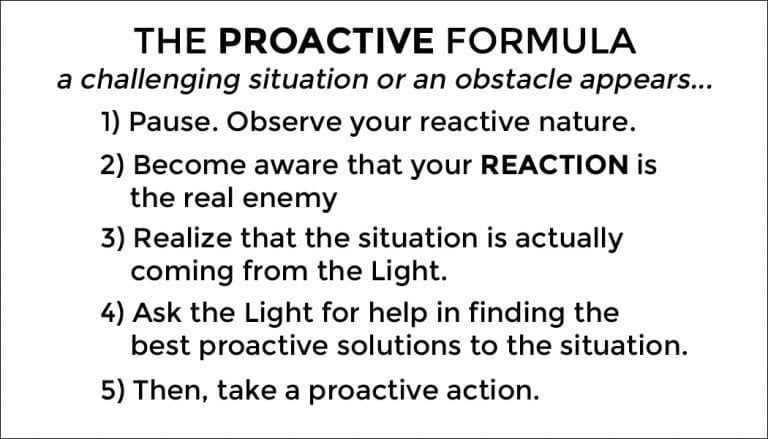
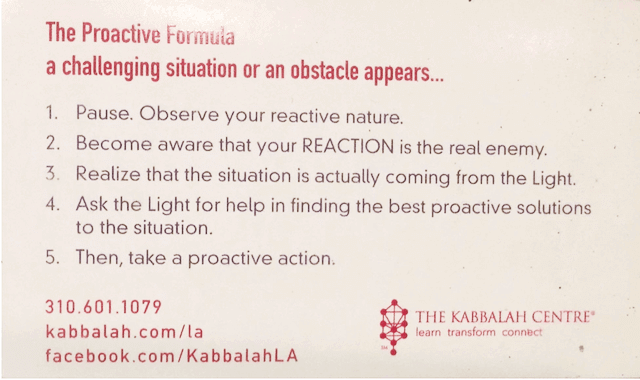
Important Links
Connect with Brian Bogert
Books
People
Previous Get Yourself Optimized Episodes
YouTube Videos

